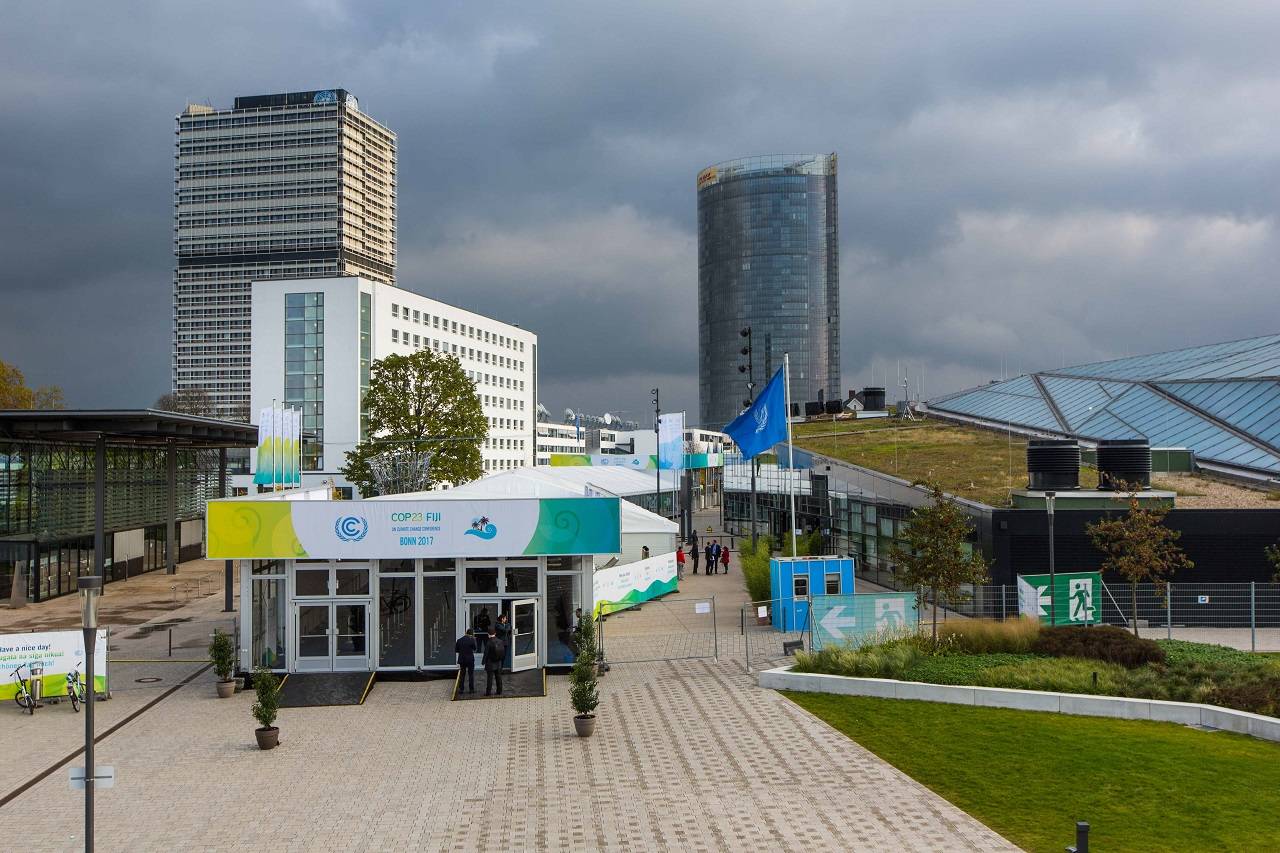Climate summit in Chile cancelled Will Bonn be hosting a world climate conference again?
Santiago de Chile/Bonn · The current protests in Chile have a direct impact on international diplomacy: The UN climate summit and the Asia-Pacific summit cannot take place there as scheduled. Two years ago there was already a substitute location appealing to the climate diplomats: Bonn.
Due to the heavy protests Chile cancelled the hosting of the next World Climate Conference in December and the Asia-Pacific Summit in November. Head of state Sebastián Piñera said on Wednesday in Santiago de Chile that the government must primarily devote itself to peace and the elaboration of reforms that do justice to the demands of the wave of protests. The climate summit was scheduled to take place from 2 to 13 December in the Chilean capital. In the search for an alternative, the focus is also on Germany - more precisely, on Bonn.
The annual meetings of climate diplomats serve to advance the implementation of the Paris Climate Agreement. Last year, more than 20,000 participants travelled to Katowice, Poland, including many heads of state and government. Environment State Secretary Jochen Flasbarth wrote on Twitter that he was in contact with the UN Climate Secretariat and the Polish Presidency of the previous Climate Conference to discuss the situation. UN Climate Change Commissioner Espinosa said that alternatives were being explored.
The United Nations Climate Change Secretariat is based in Bonn. In 2017, the city hosted the summit as a substitute. It was chaired by the small Pacific island state of Fiji, but it would have been difficult to accommodate so many people there. At that time, there was a long lead time for planning. Initially, it was not expected that a decision on a replacement location would be made on Wednesday.
"Now the German government must step in and host the climate conference at the UN site in Bonn," demanded Ann-Kathrin Schneider of the environmental organisation BUND. The implementation of the Paris Agreement must be ensured despite this rejection. Alexander Graf Lambsdorff, deputy leader of the FDP parliamentary group, also insisted: "The Federal Government must now show that they are serious about climate protection and that they want to bring the conference to Germany as soon as possible.“
Development Minister Gerd Müller used the rejection to promote his proposal that the climate conferences be held only every two years. The cancellation now was regrettable, but also an opportunity to reflect on the format, the CSU politician told the German Press Agency. "It cannot be contemporary for 20,000 people to fly half way around the globe for 14 days, once a year,“ he said. His suggestion: "On a high-ranking level the meetings should only take place every two years.“ In between, the experts should work regularly in smaller formats.
Chile's head of state Piñera said in the Casa de la Moneda seat of government that the government had decided not to hold the Asia-Pacific Summit (APEC) in November and the Climate Change Conference (COP 25) in December "in view of the difficult circumstances our country has experienced in recent weeks". While he was still speaking, demonstrators rallied nearby to take part in a major march.
The final of the Copa Libertadores, the South American football championship, will also take place in Santiago de Chile on 23 November. Whether Flamengo Rio de Janeiro and defending champions River Plate Buenos Aires will be able to play as planned remains to be seen.
US President Donald Trump had announced that he wanted to sign a partial agreement with China's President Xi Jinping in the trade dispute between the two largest economies on the fringes of the Asia-Pacific Summit on 16 and 17 November. What the cancellation of the summit now means for the timetable of the trade talks between the two countries, whether Trump and Xi could possibly meet elsewhere - and if so, when and where – was initially unclear. Russia's head of government Dmitry Medvedev was also due to participate.
Protests have been going on in Chile for a good two weeks now. The trigger was a planned, relatively small increase in local transport prices - but soon the inhabitants of the South American country were venting their fundamental anger about low wages and pensions, high living costs and unequal distribution of wealth. On Friday, 1.2 million people took to the streets of Santiago de Chile.
Violence and vandalism were reported, and security forces cracked down on demonstrators. There were deaths, injuries and thousands got arrested. Because of the riots, the government imposed a state of emergency with a curfew for ten days, but lifted it on Monday.
(Original text: dpa; Translation: Mareike Graepel)




